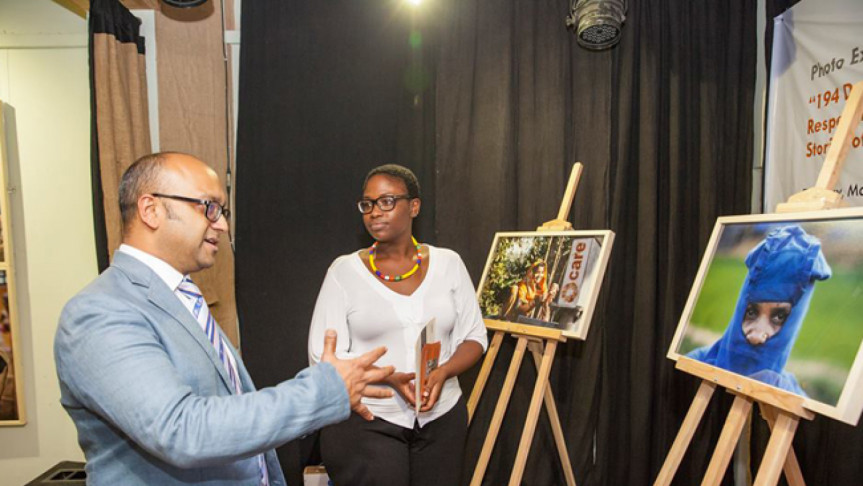194 Days of the Myanmar Refugee Crisis - Respecting Women: Faces and Stories of Resilience

Dhaka: CARE Bangladesh organised a day long photo exhibition titled ‘194 Days of the Myanmar Refugee Crisis - Respecting Women: Faces and Stories of Resilience’ to observe International Women’s Day and to mark the six months anniversary of the refugee crisis in Bangladesh. The event took place at Jatra Biroti Gallery at Banani in the capital city from 3:00pm – 5:00pm.
The exhibition was attended by representative from the UN, Diplomatic Mission, and different national and international non-govt. organizations including Danish Ambassador Mikael Hemniti Winther, UNDP’s Resident Coordinator and UNDP Resident Representative, Mia Seppo, and others. The event was also attended by high-profile global CARE delegates including CEO of CARE Austria, Dr. Barschdorf-Hager Andrea, CEO of CARE Denmark, Rasmus Stuhr Jakobsen, CARE International’s Head of Emergency Operations Sally Austin, and Deputy Director (Operations) / Humanitarian Team (HT) of CARE USA Dawelbait Elnour Mohamed Adam.

Zia Choudhury, Country Director of CARE Bangladesh welcomed the guests and having recognized the resilience of refugee women stated, ‘I want to reflect on the refugee women who took on the most disproportionate amount of duty and burden during this crisis. They are taking care of family, collecting food, providing shelter, collecting relief; and doing all of this with positivity despite the chaos all around. I also thank the Government of Bangladesh along with UN and other non-government organizations, private sectors for coming forward during this crisis.’
Since last August 25, 671,000 people (as per IGSC report, Feb 25, 2018) from Myanmar have crossed into Cox’s Bazar, Bangladesh following violence in Myanmar’s northern Rakhine State; making this exodus one of the fastest growing refugee crises in the world. Over 880,000 (as per IGSC report, Feb 25, 2018) refugees are now living in Cox’s Bazar, the world’s most densely populated refugee settlement by now.

The photo exhibition organised to observe International Women’s Day showcased different roles that women play. In times of any crisis, women are known to be the lifeline to sustain family life’s balance. They look after household chores and children, while doing outside work confidently; like collecting relief, then firewood, also fetching water, securing shelter and seeking required medical and other services for themselves and their children. Another objective of the exhibition was to pay homage to the staff of CARE and supporting organizations for their relentless hard work over the last six months to make the refugees’ lives a little better.

As of now, CARE has reached nearly 200,000 people through distribution of food and non-food items (NFI), shelter kits, hygiene and dignity kit, and services as to health, protection and GBV (Gender-Based Violence). As part of a consortium, CARE also worked with another 180,000 children with malnutrition where CARE is the technical partner.
By the end of 2018, CARE aims to reach out to 600,000 people, both refugees and host communities so that they are able to lead a better life until they are reinstated to their homeland.

 NTV Online
NTV Online




